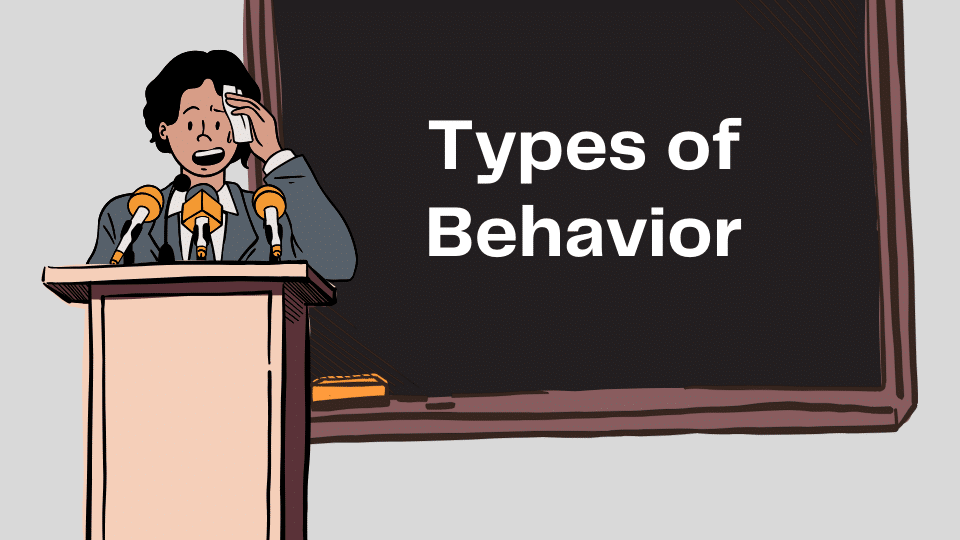Negotiating your salary can add up to thousands of dollars in lifetime earnings.
Yet many professionals miss this opportunity. Most hiring managers expect candidates to negotiate, but many people don’t even try.
The reason? Most people don’t know what to say or how to ask professionally.
A well-crafted salary negotiation email can make the difference between accepting what’s offered and getting what you deserve.
This post provides ready-to-use salary negotiation email templates and real examples to help you negotiate confidently.
You’ll learn step-by-step strategies that work for new job offers and salary increase requests.
The Importance of Salary Negotiation Emails
Salary negotiation is one of the most important career skills you can develop.
When you negotiate successfully, you increase your earnings immediately.
This extra money compounds over time through raises and promotions based on your higher starting salary.
Many people avoid negotiating because they fear looking greedy or losing the job offer.
Most employers build room for negotiation into their initial offers. They expect you to ask for more.
When you don’t negotiate, you leave money on the table that was already available to you.
Negotiating also shows confidence and business skills.
Ready-to-Use Salary Negotiation Email Templates
The key to successful salary negotiation is knowing exactly what to say and how to say it, and knowing the negotiation rules, too. Each situation requires a different approach and tone to get the best results.
Template 1: After a New Job Offer
|
Subject: Thank you for the offer – [Position Title] Email Body: Dear [Hiring Manager’s Name], Thank you for offering me the [position title] role at [Company Name]. I’m excited about the opportunity to contribute to your team. After reviewing the offer details, I would like to discuss the salary component. Based on my experience in [specific skills/area] and current market rates for similar positions, I believe a salary of $[specific amount] would be more fitting. I’m confident I can deliver strong value in this role, particularly in [mention 1-2 key areas where you’ll contribute]. I’m very interested in moving forward and hope we can reach an agreement that works for both of us. Thank you for your consideration. I look forward to your response. Best regards, [Your Name] |
Template 2: For an Existing Employee Seeking a Raise
|
Subject: Request for Salary Review – [Your Name] Email Body: Dear [Manager’s Name], I hope this email finds you well. I would like to request a meeting to discuss my current compensation. Over the past [time period], I have taken on additional responsibilities, including [list 2-3 specific examples]. These contributions have resulted in [mention specific outcomes/achievements]. Based on my expanded role and performance, I would like to request a salary increase to $[specific amount]. This adjustment reflects my current contributions and aligns with market rates for my position and experience level. I would appreciate the opportunity to discuss this further at your convenience. Thank you for considering my request. Best regards, [Your Name] |
Template 3: When the Initial Offer is Below Expectations
|
Subject: Re: Job Offer – [Position Title] Email Body: Dear [Hiring Manager’s Name], Thank you for the job offer for the [position title] position. I’m genuinely excited about joining [Company Name] and contributing to [mention specific team/project]. While I appreciate the offer, the proposed salary of $[offered amount] is below my expectations. Based on my [X years] of experience and expertise in [relevant skills], I was hoping for a salary closer to $[your target amount]. I believe this adjustment reflects the value I can bring to the role, especially in [mention 1-2 key areas]. I’m very interested in this position and hope we can find a mutually beneficial agreement. I look forward to discussing this further. Best regards, [Your Name] |
Template 4: Follow-Up Email After Initial Negotiation
|
Subject: Following up on salary discussion – [Position Title] Email Body: Dear [Hiring Manager’s Name], I wanted to follow up on our recent conversation regarding the salary for the [position title] role. I remain very interested in this opportunity and excited about the possibility of joining your team. I hope you’ve had a chance to consider my request for $[amount discussed]. Please let me know if you need any additional information from me or if there’s a good time to continue our discussion. Thank you for your time and consideration. Best regards, [Your Name] |
Template 5: Negotiating for Non-Monetary Benefits
|
Subject: Discussion about [Position Title] offer package Email Body: Dear [Hiring Manager’s Name], Thank you for the job offer for the [position title] role. I’m excited about the opportunity to join [Company Name] and contribute to the team. While I appreciate the salary offered, I would like to discuss the overall compensation package. I’m particularly interested in exploring additional benefits that would be valuable to me, such as:
These benefits would greatly enhance the value of this position for me and help me perform at my best. I believe this arrangement would be mutually beneficial as it would support my productivity and job satisfaction. I would welcome the opportunity to discuss how we might structure a package that works well for both of us. Thank you for your consideration. Best regards, [Your Name] |
Template 6: When Changing Roles Within the Same Company
|
Subject: Salary Discussion for [New Position Title] Role Email Body: Dear [Manager’s Name], Thank you for offering me the [new position title] role within [Department/Team]. I’m excited about this opportunity to take on new responsibilities and contribute in an expanded capacity. I would like to discuss the salary for this new position. Given my [X years] of experience with the company and familiarity with our processes, along with the additional responsibilities this role entails, I believe a salary of $[specific amount] would be appropriate. My contributions in my current role include [mention 1-2 specific achievements], and I’m confident I can bring this same level of performance to the new position while taking on [mention key new responsibilities]. I appreciate your consideration and look forward to discussing this further. Best regards, [Your Name] |
Template 7: Negotiating After a Second Offer or Counteroffer
|
Subject: Re: Updated offer for [Position Title] Email Body: Dear [Hiring Manager’s Name], Thank you for the revised offer of $[amount] for the [position title] position. I appreciate your willingness to work with me on this negotiation. While this is closer to my expectations, I was hoping we could reach $[your target amount]. This adjustment would reflect [mention specific reason – market rate/experience/competing offer] and would make this opportunity even more compelling for me. I remain very interested in joining [Company Name] and contributing to [specific team/project]. I believe we can find a mutually beneficial agreement that works for both parties. I look forward to your response. Best regards, [Your Name] |
How to Follow Up After Sending a Salary Negotiation Email?
Following up properly after sending your salary negotiation email is crucial for maintaining momentum and showing continued interest.
Most employers need time to review requests and consult with decision-makers, but silence doesn’t mean rejection.
Wait three to five business days before sending a follow-up message.
This timeframe gives employers enough time to process your request while demonstrating your patience and professionalism.
Keep your follow-up email brief, polite, and focused on reaffirming your interest in the position while inquiring about the status of your salary negotiation email discussion.
Salary Negotiation Email Best Practices and Common Mistakes

Even with the right template, small mistakes can hurt your salary negotiation email success.
Learning what not to do is just as important as knowing the right approach when writing your salary negotiation email.
- Research market rates thoroughly: Know typical salaries for your role and location before making any request to strengthen your position
- Be specific with numbers and provide justification: Say “I’m looking for $65,000 based on my experience” instead of vague requests like “higher salary”
- Use collaborative language, not aggressive tone: Avoid words like “demand,” “require,” or “must have,” and focus on mutual benefits instead
- Time your request properly and be patient: Wait for a firm job offer before negotiating, and give employers 3-5 business days to respond
- Consider the complete compensation package: Evaluate benefits, vacation time, professional development opportunities, not just base salary
- Document your value with specific achievements: Prepare measurable results and examples that demonstrate your contributions to the company
Note: Salary negotiation is a professional conversation, not a confrontation. Employers expect negotiation, so approach with confidence and respect.
Conclusion
Writing a successful salary negotiation email doesn’t have to be intimidating.
With the right templates and approach, you can confidently request the compensation you deserve while maintaining professional relationships.
Remember to be specific about your salary expectations, provide clear justification for your request, and avoid common mistakes that can hurt your chances.
Take time to research market rates and consider the complete compensation package beyond just base salary.
Use these templates as your starting point, but personalize them to fit your situation.
The key is being professional, prepared, and patient throughout the process.
Have you used any of these salary negotiation email templates?
Share your experiences and questions in the comments below to help other professionals in their negotiation process.
Frequently Asked Questions
Should you Speak First in a Negotiation?
It’s generally better to let the employer make the first offer to avoid anchoring too low and leaving money on the table.
What’s a Good Counteroffer for Salary?
A counteroffer of 10-20% above the initial offer is typically reasonable, depending on your leverage and market research.
What Is the 3-Second Rule in Negotiation?
The 3-second rule means staying silent for three seconds after the other party makes an offer or statement.










